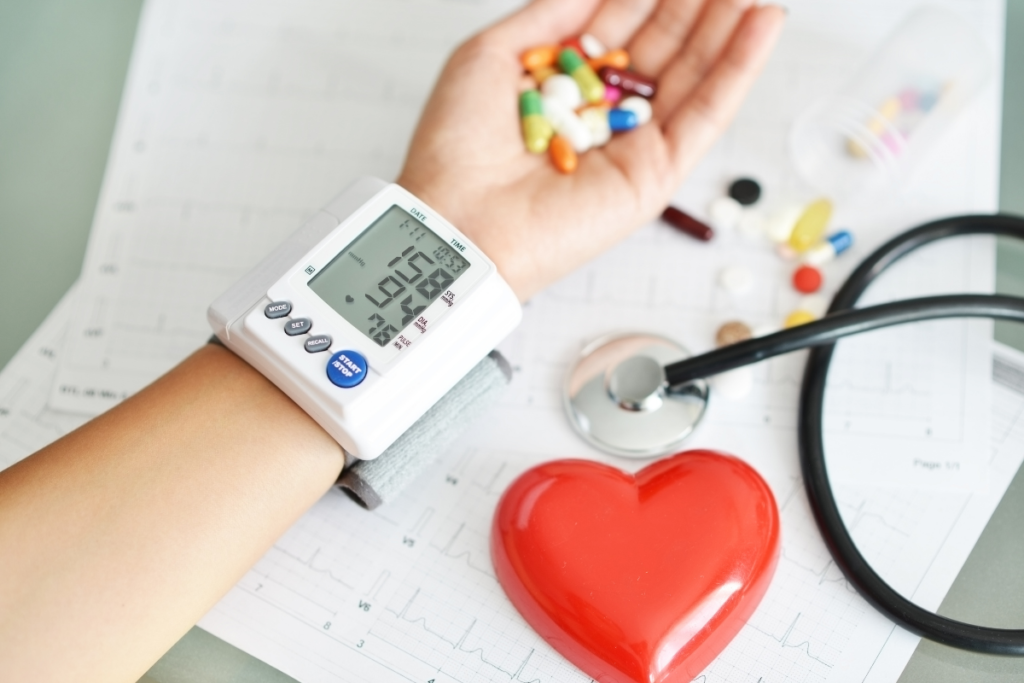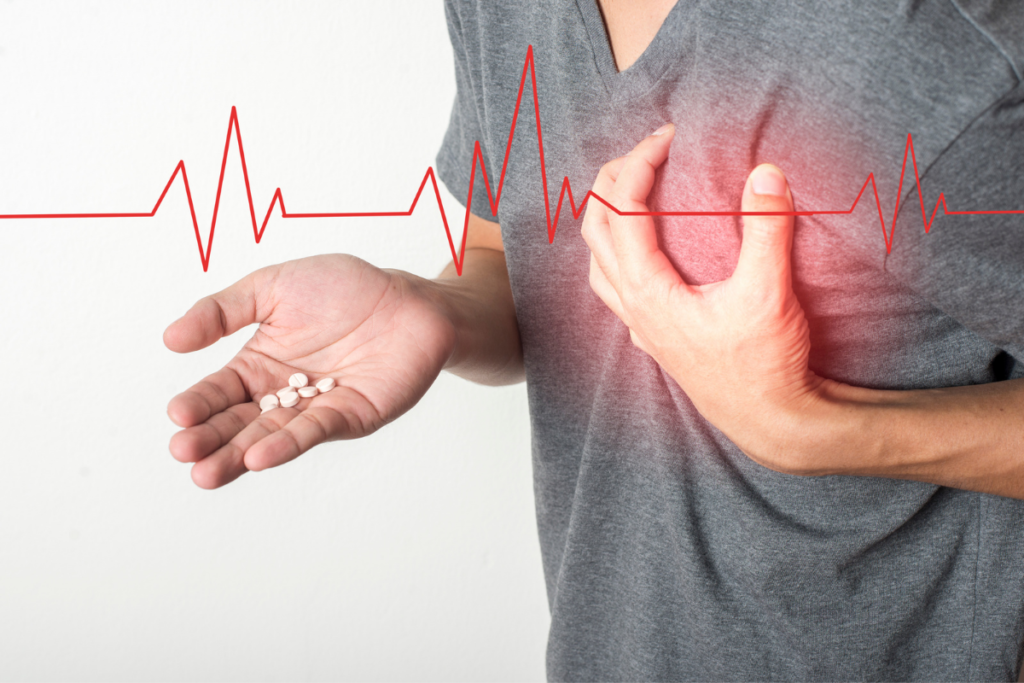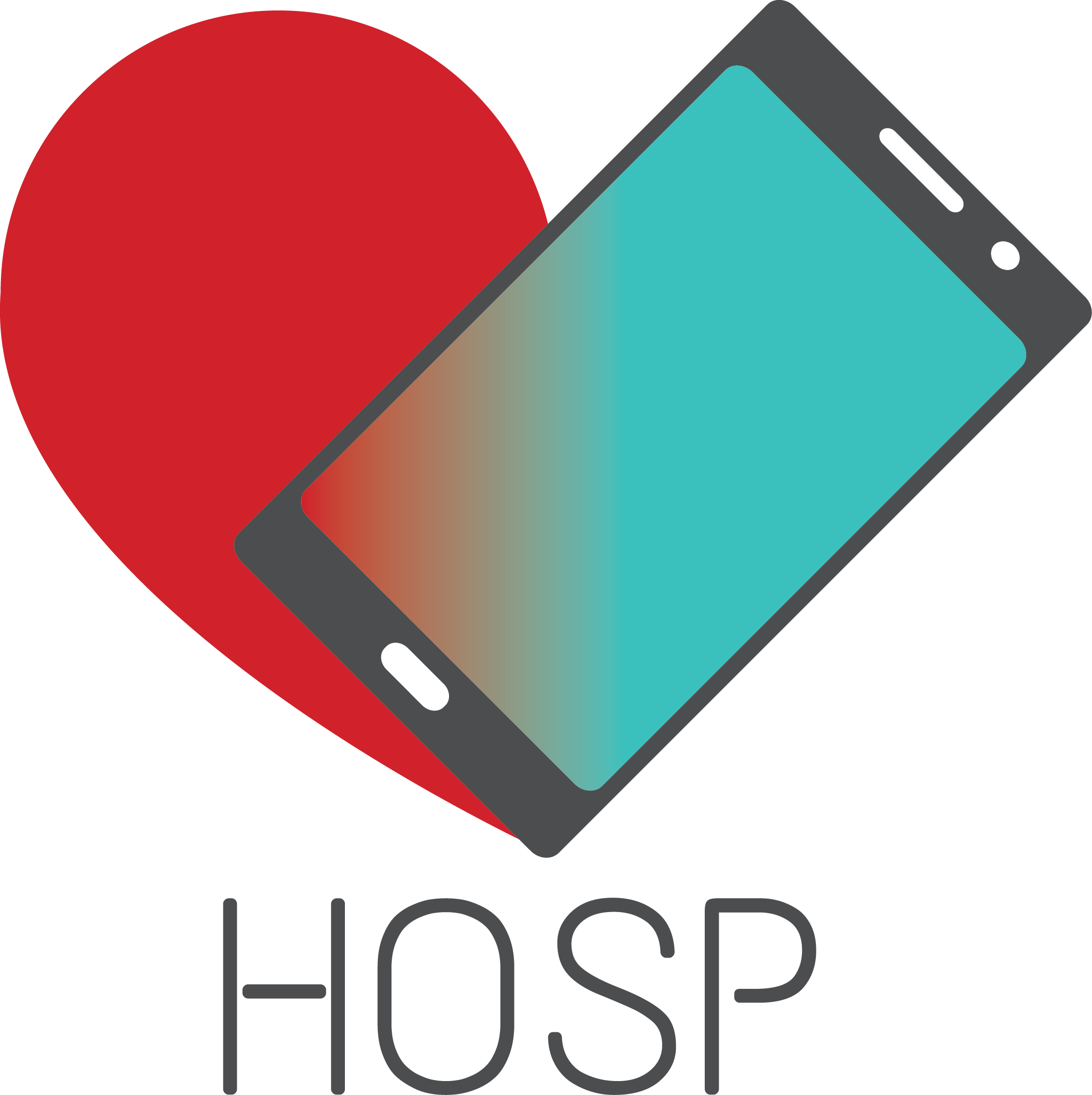Hypertension

Hypertension is the most frequent non-infectious disease in the world. It is estimated that 22% of all of the world’s population (one billion) have high blood pressure. This disease is more common in men than in women, especially in people with lower socioeconomic status. The prevalence of hypertension is increasing with older age. About 90% of people who do not have hypertension at the age of 55 – 65 will develop it by the age of 75 – 85. The prevalence in Europe is between 30 – 45%, while in the US it goes up to 32%.
Definition of hypertension
Hypertension is a chronic medical condition where the pressure that blood does on arteries is elevated. It has name ”a silent killer” because it does not develop any symptoms until it is too late. There are two types of blood pressure. Systolic, when the heart is contracted and it’s making the blood to engage high tension on the arteries, and diastolic, when the heart is in a relaxed state being ready to be filled with upcoming blood which is making it flow unforcedly. Diastolic blood pressure represents the moment when the blood is causing the lowest tension on arteries. Blood pressure is measured in units of mm Hg (a millimeter of Mercury), and hypertension is a condition where it surpasses the value of 140 / 90 mm Hg (first being the systolic and second the diastolic blood pressure).
Classification
The values of
- < 120 / 80 are representing the optimal blood pressure
- 120-130 / 80-85 describe normal blood pressure
- 130-140 / 85-90 describe higher normal blood pressure
- 140-160 / 90-100 present the First stage of hypertension (mild hypertension)
- 160-180 / 100-110 indicate the Second stage of hypertension (medium hypertension)
- ≥ 180 / 110 (severe hypertension)
- if the systolic pressure is ≥ 140 and diastolic < 110 the condition is called isolated systolic hypertension
- On the other hand if the systolic pressure is <140 and diastolic is > 110 the condition is called isolated diastolic hypertension
- If the systolic and diastolic values are divided in different categories, the category which is more severe is accepted.
Primary (essential, idiopathic) hypertension –Developed by an unknown cause, primary hypertension affect about 90 – 95% of all hypertensive people. While we can not define origin, it is a multifactorial disease, and it’s depending on many factors such as genotype, diet, obesity, smoking addiction, physical inactivity or stress.
Secondary hypertension is present in other 5 – 10%, and it is response to other disorders and diseases. If these conditions are treated or regulated the blood pressure is stabilized back to normal value. Such diseases include vascular renal diseases (renal artery stenosis), chronic kidney disease, adrenal gland diseases (pheochromocytoma – a neuroendocrine tumor of the adrenal glands, primary aldosteronism, Cushing syndrome), thyroid gland diseases (hyper and hypothyroidism) or the use of certain drugs (high estrogen oral contraceptives, NSAIDs, corticosteroids, antidepressants).
Pathogenesis of hypertension
Hypertension is a hemodynamic disorder in which the blood pressure increases due to the increase of cardiac output or total peripheral resistance. This happens if regulation mechanisms fail (neural, vascular, renal, and hormonal).
Neural mechanism
The sympathetic neural system is the main culprit in this regulation fail. Its hyperactivity is not responsible for early primary hypertension in kids only but also for hypertension related to obesity, sleep apnea, heart failure, and diabetes type 2.
Vascular mechanism
The changes in the structure and function of small and big arteries have a significant role in pathogenesis and progression of hypertension. In normal condition, the arterial endothelium releases relaxant factors which dilate the blood vessels while in pathological condition those factors are decreased, and inflammatory and thrombotic factors are produced. Over time blood vessels are damaged more and more so they remodel which worsens hypertension even more.
Renal mechanism
Hypertension occurs as a consequence of kidney disability for the elimination of the remarkable amount of sodium descending from a high NaCl diet in many cases. Retention of sodium is causing a plasma volume to get up, increasing total peripheral resistance and cardiac output also. Nonetheless elevated sodium concentration is increasing the arterial smooth muscle cell sensitivity to constrictive agents.
Hormonal mechanism
The activation of Renin–angiotensin–aldosterone system is one of the most important factors which contribute to blood vessel dysfunction, their remodeling, and hypertension. Angiotensin II is causing constriction of blood vessels, production of free radicals, inflammation, and aldosterone releasement.
Diagnosis
The first is to check your blood pressure in the health center. If your blood pressure is higher than 140/90 in two different doctor visits, you have hypertension. Many people feel stressed when they are around health professionals, and their blood pressure doesn’t show the real state so the other way is to check your blood pressure by yourself at home and report those results to your doctor. If you have a digital blood pressure monitor, remember to always use it while you’re sitting. keep your hand on the same height as your chest, because if your hand is higher than your chest, the pressure will be higher for 10, and if it’s lower than your chest it will decrease by 10.
Don’t drink coffee, smoke a cigar, eat or generally stress your body before checking. Measure it a couple of times and note the values. If the pressure is above 140/90 check it again after 5 minutes of laying down. Sometimes the pressure fluctuates too much so a 24-hour blood pressure monitoring is needed. Holter blood pressure monitor is worn by a patient for 24 hours and it gives a much larger picture of the real situation. After diagnosing hypertension a doctor may require you to do complete blood and urine tests, ECG, eye examination, heart, brain, and kidney ultrasound.
Complications
Untreated hypertension can cause many organ damages. At first, no symptoms are shown, but after some time it can lead to heart, blood vessel, kidney, and eye disease.
Heart complications
Since the heart needs to work harder to pump the blood against the increased pressure, it resolves to hypertrophy of the left side. That means that heart muscle enlarges which is not good like it would be in skeletal muscles. An enlarged heart will eventually progress to heart failure, especially if combined with atherosclerosis because atherosclerosis increases blood pressure even higher. Higher oxygen demands which it can’t achieve may deprive the heart of essential work power and invoke angina.
Infarction

Because hypertension is the main risk factor for atherosclerosis also, it could cause a heart or brain arterial thickening and lead to heart attack or stroke.
Aneurysm
Hypertension could cause an aneurysm, a blood vessel weakening and bulging which may eventually rupture, and become a life-threatening danger.
Brain complications
High blood pressure affects your ability to learn, understand and think. Disrupted blood flow in narrowed brain blood vessels may induce a certain type of dementia called vascular dementia.
Kidney complications
High blood pressure damages the large arteries that join into kidneys as well as kidney’s filtration system leading to an accumulation of toxic waste and fluids in the organism. Approximately 10% of untreated hypertensive people die from kidney failure.
Eye complications
Constant high blood pressure can damage the blood vessels that support retina (retinopathy) leading to eye bleeding, blurred vision and even blindness. Ophthalmoscopy, a test which allows a health professional to see inside your eye is a part of the regular eye exam.

Difficulty sleeping
Hypertension can cause an obstructive sleep apnea which is a condition that makes your throat muscles to relax forcing you to snore loudly additionally reducing your ability to fall asleep. Moreover, sleep deprivation is beside that increasing the blood pressure on itself.
Treatment
Non-pharmacological measures
Non-pharmacological measures are very important in reducing high blood pressure. Changes in lifestyle to with this disease as well to people who are in risk to develop it in later life. These measures can regulate a mild stage of hypertension without the need for pharmaceutical use. It is crucial to lower your salt intake because sodium is keeping more liquids in the organism followed by increased blood resistance against the heart’s pumping function and so on hypertension.
Sodium is an essential ingredient in lots of food, and putting it on dishes additionally is causing an excess level of sodium concentration in blood. Keep a healthy nutrient-rich diet with many fruits and vegetables, whole grains, low-fat dietary products, and omega 3 fatty acids. Avoid any junk food filled with cholesterol, trans, and saturated fats. If you’re overweight or obese, every pound that you lose is helping you, because obesity is straining your heart, and it’s making resistance to blood flow.
Exercise and be physically active, at least 30 minutes of walking every day. It is important to be persistent because if you stop exercising hypertension may get back. Lower alcohol intake and stop smoking. Try to manage your stress level, relax, and regulate your sleeping problems.
Pharmacological treatment
Pharmacological treatment is often included if the blood pressure is above 140/90. Your therapy will usually begin with one of the following drugs:
Thiazide diuretics
This type of medicines is often firstly prescribed for older people. It’s effective against isolated systolic hypertension, and it’s helping in regulating heart failure symptoms. The main goal of thiazide diuretics is to accelerate the elimination of sodium, blocking its resorption in kidneys, followed by removal of water excess from the organism, and managing the blood pressure lowering the blood volume and cardiac output.
Angiotensin-converting enzyme inhibitors
(ACE inhibitors)
ACE inhibitors are frequent drugs, usually combined with thiazide diuretics. They give many benefits aside from lowering the blood pressure. They help people with diabetes, heart failure, and heart attack survivors. Mechanism of ACEi action is stopping the conversion of angiotensin I into angiotensin II which is a powerful vasoconstrictor (constriction of blood vessels), sympathetic neural system activator and promotor of aldosterone releasing (Aldosterone is a hormone which causes the water retention).
Angiotensin II receptor blockers (ARBs)
ARBs course of action is similar to ACEi. They both affect angiotensin II but in different ways. While the ACE inhibitors block its formation, ARBs don’t disrupt angiotensin II synthesis but occupy its receptors so angiotensin II can’t accomplish its effect.
Calcium channel blockers (CCB)
These medicines are beneficial in older people, people with atrial fibrillation or angina in particular. They block the cellular calcium intake relaxing the blood vessels or the heart muscle depending on the drug. CCB decrease heart contraction, heart frequency, and heart muscle cell excitability.
Beta blockers
Beta blockers are often given in hypertension that is co-related with other heart diseases such as angina, heart failure or heart attack. They lower the cardiac output by blocking β1 receptors causing the weaker heart contraction and slower frequency, decreasing the renin releasement in kidneys, and lowering the sympathetic neural system activity.
However, other drugs include alpha blockers that reduce blood vessel narrowing, direct renin inhibitors, which is a hormone that causes the chain of renin-angiotensin-aldosterone effects, direct vasodilators which widen blood vessels, aldosterone antagonists, and the central acting agent that are preventing the brain stimulants from increasing the blood pressure.
Supplements
Magnesium
Magnesium regulates the level of other electrolytes such as sodium and calcium in your organism. It is very important because natural human vasodilators require magnesium for their effect. The magnesium deficit is causing muscle weakness.
Hawthorn
Hawthorn is famous as a traditional heart boosting agent. One of its effects is the lowering of blood pressure nevertheless of a person’s age. Over time Hawthorn can help in blood vessel widening and regulation of the heart’s rhythm.
Coenzyme Q10
All the Lorem Ipsum generators on the Internet tend to repeat predefined chunks as necessary, making this the first true generator on the Internet. It uses a dictionary of over 200 Latin words, combined with a handful of model sentence structures, to generate Lorem Ipsum which looks reasonable. The generated Lorem Ipsum is therefore always free from repetition, injected humour, or non-characteristic words etc.
